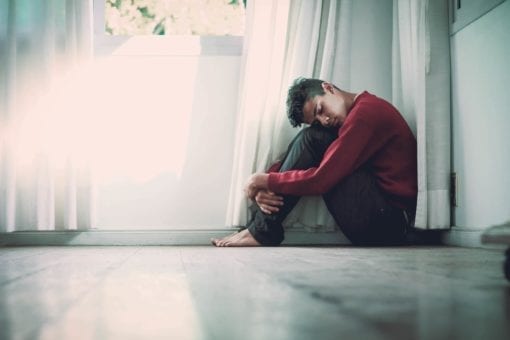Loneliness and Eating Disorders
Eating disorders are not just about food and body image, in fact, eating disorders are deeply connected with underlying triggers associated with low self-esteem, past trauma, interpersonal battles, and loneliness. Some might ask: Does disordered eating create loneliness, or does loneliness create disordered eating? The answer is both. Low self-esteem has been shown to relate to concurrent, and later feelings of isolation in adolescence and adulthood. Eating Disorder Loneliness and other unpleasant or painful emotions can be a trigger for some individuals, to “go away from” or “go to” food. On the other hand, eating disorders can lead to feelings of differentness, unworthiness, hopelessness, self-disgust, and consequent disconnection from self and others, which can create intense feelings of loneliness.
Social withdrawal syndrome
“I’m struggling to find friends”, “I have trouble connecting with others”, “I can’t go, because I don’t have a life, and wouldn’t have anything to talk about”, “I never know what to say”, “people don’t like me”; are all common phrases individuals use who are struggling with an eating disorder. The evidence shows that individuals with eating disorders suffer in silence. Researchers have found that those struggling with an eating disorder hold low trust beliefs in others; show an unwillingness to disclose personal information to others, notably about eating and show elevated loneliness. These patterns are presumably part of the shame that individuals with eating disorders experience regarding their eating behavior. Many researchers and psychologists refer to this behavior as social withdrawal syndrome.
Eating disorder research has also shown that social withdrawal syndrome can lead to poor physical health increased mortality. Additionally, it is believed that these individuals are unlikely to disclose personal information with their friends and family and as a result have a lower probability of seeking professional treatment for their eating disorder.
Isolation for friends and family
Individuals who are battling an eating disorder are not the only ones who are experiencing isolation. Family members often describe they have “lost” their loved one to an eating disorder because of the severe isolation brought on by the disease. Sadly enough, it is common for family and friends to feel at a loss as they witness their loved ones engage in disordered eating patterns. Social isolation, hiding in the bathroom, blunted emotions and all kinds of secrets lead to broken family ties, higher divorce rates, and the loss of friendships.
Understanding the Role of Isolation in Eating Disorders
- Isolation allows for distancing oneself from living in the present
- Isolating oneself results from personal experiences of being shamed or humiliated and not wanting to return to that place
- Isolation supports and maintains the theory of “something is wrong with me?”
- Isolations breeds lack of self-worth and fear of rejection
- Isolations glorifies privacy and shame
- Isolation is an unhealthy coping mechanism for panic and anxiety
- Isolation is experienced as unbearable and is not the preference of the individual who is struggling with an eating disorder
- A lack of trust maintains the isolation
Sharing your pain and fear to overcome your loneliness
Sharing pain and fear with others aloud directly challenges isolation and opens a new narrative about oneself. Although the idea can be terrifying, allowing yourself to exist openly as your complex and nuanced self is the prescription for the illness of isolation.
We’re Here for You
If you are struggling or someone you know is struggling, we are here for you. Center for Discovery’s Treatment Centers specialize in treatment for eating disorders, mental health and dual diagnosis treatment with unique treatment programs for every individual to get them on their way to eating disorder recovery.
For more information, resources, or to consult with one of our specialists, call 888.320.7521.
